The NGIAtlantic.eu project has ended in February 2023. For the follow-up initiative, visit NGI Transoceanic.
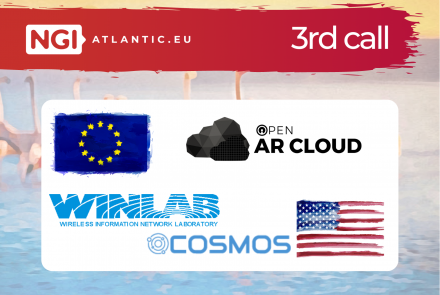
Project Coordinator (EU) :
Open AR Cloud Europe gUGCountry of the EU Coordinator :
GermanyOrganisation Type :
Non-profit OrganisationDeployment and Evaluation of a 5G Open Spatial Computing Platform in a Dense Urban Environment
Discovery and identification technologies
The vision of an augmented reality (AR) cloud is about an enhanced version of the real world extended by persistent, location-anchored digital objects. In this project, we adapt and advance various components of the Open Spatial Computing Platform (OSCP) to become deployable at multiple testbeds. We deploy the platform at the COSMOS 5G testbed and produce tutorials and best practices for building and using maps of spaces in AR cloud experiences. We create a new OSCP reference client in Unity and build representative demo applications that allow virtual objects to persist throughout space and time.
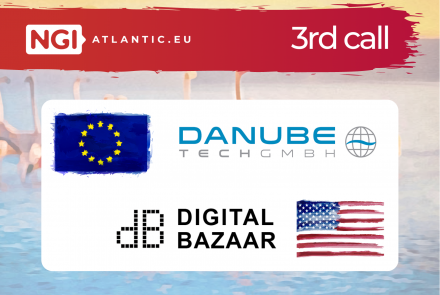
Project Coordinator (EU) :
Danube TechCountry of the EU Coordinator :
AustriaOrganisation Type :
SMETransatlantic SSI Interop
Discovery and identification technologies
In this experiment, we demonstrated interoperability of experimental decentralized identity infrastructures in the US and EU. On the US side, our partner Digital Bazaar has set up infrastructure for issuing digital Permanent Resident Cards, as envisioned by the US Department of Homeland Security’s (DHS) Silicon Valley Innovation Program (SVIP). In the EU, we issued digital diplomas using the pre-production European Blockchain Service Infrastructure (EBSI). In the experiment, we successfully showed how the US- and EU-issued digital identity credentials can be exchanged between the two sides.
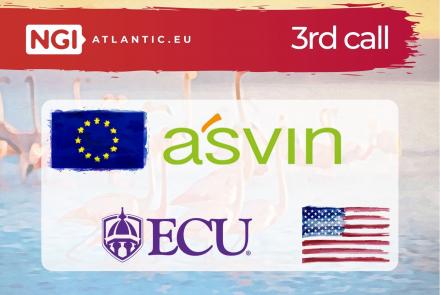
Project Coordinator (EU) :
Asvin GmbHCountry of the EU Coordinator :
GermanyOrganisation Type :
SMEPhysical Unclonable Functions for Identification of Large Scale distributed IoT Assets
Decentralised data governance - experimentation of results
A secure bootstrapping is the foremost step for an IoT device to become part of a critical, heterogeneous network. A complete, advanced bootstrapping process can help to close the security loopholes and provide defence against the attacks. asvin has developed a secure bootstrapping process with integration of decentralized and distributed technologies, to uniquely identify an IoT device and perform required authentication and authorization.
The core goal of the project is to verify and validate the solution at large scale using high computing resources on Virtual Wall and Binding Research Infrastructures for the Deployment of Global Experimental Science (BRIDGES) testbeds, in close collaboration of asvin GmbH (EU) and East Carolina University (US). Additionally, the distinctive and complementary characteristics of both testbeds will be employed to optimize the efficiency of the solution by analysing the data generated by the experiment.
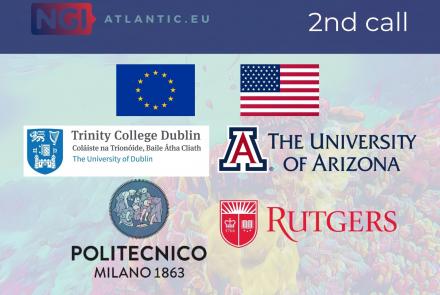
Project Coordinator (EU) :
Trinity College DublinCountry of the EU Coordinator :
IrelandOrganisation Type :
AcademiaIntegrating OpenIreland and COSMOS testbeds for delivering a cross-Atlantic Open Networking Solution
Experimental Platform interconnections
The vision of the project is to develop a federation and control plane framework for OpenIreland that is compatible with COSMOS, so that users can easily move from one testbed to the other. COSMOS has already developed some of these tools, which will be transferred by our team to OpenIreland. This project will enable European researchers to better interface with the international collaboration capabilities of COSMOS, under development in the COSMIC project. Two experiment were designed to showcase this possibility and to provide a user guide for other future experimenters.
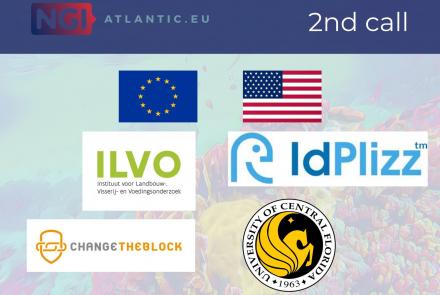
Project Coordinator (EU) :
Research Institute For Agriculture, Fisheries And Food (Ev Ilvo)Country of the EU Coordinator :
BelgiumOrganisation Type :
ResearchNextDE–Enabling the Next Generation P2P/Data Economy
Decentralised data governance - experimentation of results
This project will experiment with innovative NGI technologiesand developa new business process in data sharingto decentralizedata governance furtherand enhance trust to all participants. Use caseswill be designed and testedwith EU-EU partners.The mainactors are, DjustConnect,which deliversdata sharing services in the AgriFood industry, ChangeTheBlock,which providessmart contracts services using blockchain technologyandIdPlizz, which provides AI technology biometric recognition services. Dataconsumers (receive data from an API) and providers (exposedata using an API)will negotiate on API prices using assessed base prices and establish verified agreementson API usageduring the project
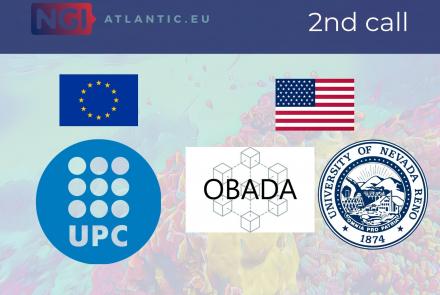
Project Coordinator (EU) :
Technical University of CataloniaCountry of the EU Coordinator :
SpainOrganisation Type :
AcademiaDecentralized data ecosystem for the Open Blockchain for Asset Disposition Alliance
Decentralised data governance - experimentation of results
More than 6 billion new ICT goods are sold annually worldwide. We cannot afford by 2030the current growth of ICT devices. Decarbonisation is a must to tackle the environmentalcrisis and comply with the 1.5°C global warming objective described by the IPCC SpecialReport (Paris Agreement).Therefore, we need to create effective market ecosystems capable of reusing ICT devices,extending their lifespan for new uses, instead of always manufacturing new ones, throughreuse, repair, and ensure final recycling in a sustainable way.Our NGI eReuse-Ledger testbed is a permissioned distributed ledger to experiment aboutdevice traceability.
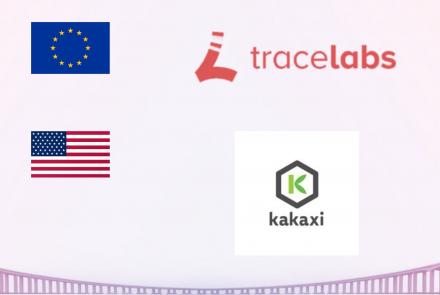
Project Coordinator (EU) :
Trace Labs (Prospeh d.o.o.)Country of the EU Coordinator :
SloveniaOrganisation Type :
SMEStarting date :
Food Data Marketplace - Privacy and Trust Enabling Data Marketplace for Sustainable Supply Chains
Privacy and Trust enhancing technologies
Food Data Market (FDM) is an inclusive marketplace fostering new economic models for sustainable food supply chains by allowing farmers and food companies to keep control of their data and offer it for purchase. It makes use of essential benefits from distributed ledger technologies (trust, neutrality, inclusiveness) while maintaining the crucial benefits of participants intact by employing privacy-by-design approach thus allowing farmers as well as cooperatives to regain control of their data, give it a price tag, and sell it to interested partners in the supply chain.
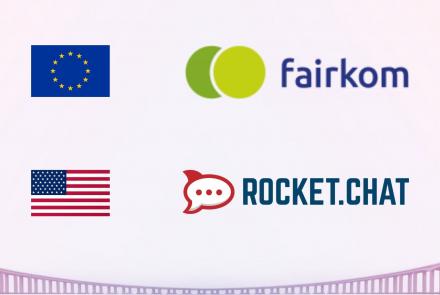
Project Coordinator (EU) :
Fairkom GesellschaftCountry of the EU Coordinator :
AustriaOrganisation Type :
SMEStarting date :
Fairteam
Privacy and Trust enhancing technologies
Organizing objects or channels by teams is a common feature of workstream collaboration platforms. Rocket.Chat is a market leading and feature rich open source messenger. It offers various ways to cluster teams, such as federation between instances, grouping users in departments through omnichannel or tagging channels using the API. Within this experiment we will be testing in close cooperation with the Rocket.Chat development and UX team various interfaces for assigning chat groups to teams. Special attention is given to nextcloud and identity management systems such as keycloak to map existing organisational groups like departments to teams in Rocket.Chat. One of the goals is to open additional opportunities for the dissemination of open source stacks in organisations and enterprise deployments.
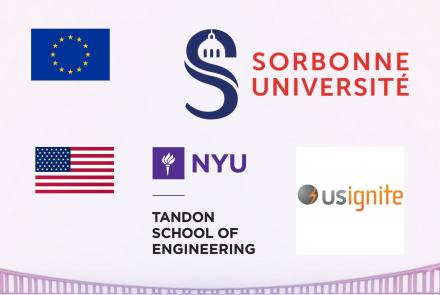
Project Coordinator (EU) :
Sorbonne UniversityCountry of the EU Coordinator :
FranceOrganisation Type :
AcademiaStarting date :
CacheCash Experiment on EdgeNet
Discovery and identification technologies
CacheCash, the CDN technology that we were testing, and which is developed by our US partner at NYU, has the potential to change the nature of CDNs by involving the end-users themselves directly in serving content through machines that are under their control. It provides a service where interested users run caches and are incentivized to participate by receiving a cryptocurrency in exchange for serving content.
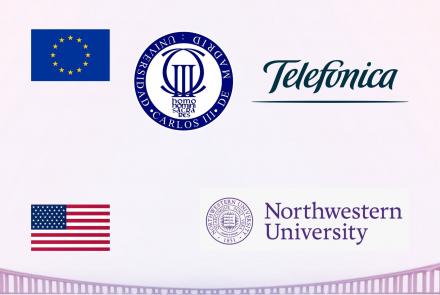
Project Coordinator (EU) :
Universidad Carlos III de MadridCountry of the EU Coordinator :
SpainOrganisation Type :
AcademiaStarting date :
Measuring Multi-Carrier Cellular Access International Roaming Performance
Discovery and identification technologies
Multi-Carrier Cellular Access (MCCA) providerssuch as GoogleFi irruptedrecentlyin the mobile Internet access market claiming to offer enhanced performance at reduced prices. MCCAproviders dynamically attach to different carriers based on real time measurements of performance.The goal of the project is to do an experimental comparativestudy ofthe performance of these emerging MCCAproviders and the incumbent cellular providerswith a specialfocus on the performance while roaming.The proposed methodology is to acquire MCCAservices and traditional mobile services in the US and experimentallycompare theirperformance bothat home (US) and while roaming (EU).
